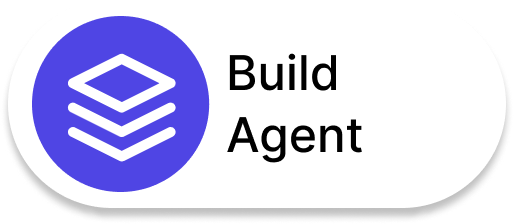Do you want a job that is different from all the other traditional job profiles out there? Well, Salesforce can fulfill your wish.
Salesforce is one of the most popular CRM tools available in the market. There has been tremendous growth in Salesforce technology in the past years, and hence new job opportunities are also knocking at the doors.
One such job profile is Salesforce Administrator. Sure it doesn’t sound like a traditional job profile but if you are wondering about the roles and responsibilities of a Salesforce Administrator, then you are at the right place.
Before knowing the roles and responsibilities of a Salesforce Administrator, you must know that the first step towards becoming an admin is to pass the Salesforce Certified Administrator Exam. Check out our Salesforce admin course – personalized study plans, free mock exams, quizzes, flashcards and much more.
Salesforce Administrator Responsibilities
Salesforce Administrator responsibilities include:
- Guaranteeing the best performance of Salesforce systems and products.
Upgrading and configuring Salesforce systems for seamless integration.
Administering Salesforce roles, profiles, sharing rules, workflows, and groups. - Granting or revoking user access to specific data, reports, and dashboards.
- Importing and exporting data, maintaining data quality, and creating backups.
- Customizing Salesforce applications and features using tools such as the Object Manager, Lightning App Builder, and Process Builder.
- Creating and maintaining automated workflows, approval processes, and process builder flows.
- Building reports and dashboards to provide insights into sales and marketing performance.
- Setting up and managing communication channels such as Chatter groups and email templates.
- Providing training and support to end-users, troubleshooting issues, and maintaining system documentation.
- Evaluating and installing third-party applications from the Salesforce AppExchange to enhance system functionality.
- Developing and enforcing data governance policies to maintain data quality and consistency across the organization.
Related read – What is a Salesforce Administrator?
Real-time Salesforce Administrator Roles
Salesforce Administrators work and collaborate with different stakeholders to effectively customize the platform and system requirements. They connect business with technology.
A Salesforce Administrator’s responsibility consists of a wide range of duties as follows.
1. Data-management Responsibilities
a. Checks for the restrictions on user accounts for vital data accessibility. And also unlocks user accounts and reset passwords.
b. Remains responsible for creating data records and maintaining reports in Salesforce.com
2. Technological and Executive Role
a. Handles all technological resources associated with sales and available tools at Salesforce effectively.
b. Deals with all the executive functions, such as maintenance of user accounts, dashboards, and additional conventional tasks such as two-factor verification, certificate problem.
3. General Management Duties
a. Serves as a bridge connecting users, business people, and application developers. In addition, they also help users develop reports that provide meaningful metrics.
b. Works as the main System Administrator and organizes the assessment and extension of new requests for development.
c. Responsible for handling the work environment at Salesforce.com with multiple users by taking care of redundancy and duplicity of user accounts.
Therefore, a Salesforce Admin deals with a variety of duties but in a nutshell, it is all about maintaining the platform, making it simple for the users to use Salesforce, and staying updated on the new tools and requirements. All these tasks can be achieved with the right skills and training.
Skills Needed to Become a Salesforce Administrator
Wondering whether you have the right skills? When it comes to the skill set needed to become an efficient Salesforce Administrator, it is all about magnificent management skills, problem-solving quality, and data assessment skills. One must also have proficiency in interacting with people at all levels of the company. Explore our in-depth guide on Salesforce Administrator Skills.
Career Prospects and Opportunities for Salesforce Admins
As the community of Trailblazers continues to expand and influence the business world, the demand for Salesforce Admins is also on the rise. According to our research, there has been a 148% increase in admin jobs over the past five years in the U.S., with a median salary of $86,000. This career path is ideal for those who have a passion for learning and enjoy working with the latest technologies.
Some individuals earn their Salesforce Administrator Certificate to enhance their current role within a company, potentially leading to a higher salary. Others pursue certification to strengthen their resume and seek new job opportunities.
Salesforce is utilized by a wide variety of companies across different industries and sizes, including retailers, nonprofits, financial services, healthcare providers, software companies, and service-oriented businesses.
Salesforce Administrator Credentials and Certifications
Pursuing a career as a Salesforce Admin can be a rewarding long-term path or an excellent way to enhance your current career trajectory. The Salesforce Administrator role offers five key credentials:
- Salesforce Associate: Ideal for individuals with a basic understanding of how an integrated CRM platform addresses the challenge of connecting departments and customer data. This credential suits those with up to six months of Salesforce user experience. It is beneficial to understand foundational concepts like reporting, user administration, sharing, customization, and data management, though technical expertise is not necessary.
- Administrator: Targeted at those with Salesforce experience who are always seeking ways to enhance a company’s use of Salesforce features and capabilities.
- Advanced Administrator: Designed for experienced Salesforce Administrators who have mastered advanced features and functionalities to tackle various business problems.
- CPQ Specialist: For professionals experienced in designing, building, and implementing quoting flows using Salesforce Configure, Price, Quote (CPQ), which is essential for organizing sales teams.
- Marketing Cloud Administrator: For those who configure and troubleshoot user requests in Marketing Cloud, manage subscriber data, and navigate Setup.
- Platform App Builder: For individuals skilled in designing, building, and implementing custom applications.
Additionally, you can earn Superbadges to highlight specialized learning in areas such as Business Administration Specialist and Security Specialist.
During your certification exam preparation, you will learn concepts including:
- Managing users, data, and security
- Customizing and maintaining Sales Cloud and Service Cloud apps
- Building reports, dashboards, and workflows
Beyond becoming a Salesforce Admin, various certification paths exist to help professionals demonstrate their expertise with the platform, including Salesforce Architect, Developer, Marketer, Consultant, or Designer certifications.
To achieve a Salesforce Administrator credential, no prior certifications are required. However, to become an Advanced Administrator, you must first obtain the Administrator Certificate. The Advanced Administrator exam builds upon your existing Salesforce Admin knowledge and deepens it.
Before scheduling your exam, we recommend candidates have six months to one year of Salesforce experience.
To Conclude
To fulfill the Salesforce Administrator’s responsibilities, certain skills are required. With this in mind, one must go for the Salesforce Certified Administrator Exam to grab the opportunity. Begin your journey with one of our best gurus who will help you become a master and achieve your dream. Advance your Salesforce career with our intensive Admin and App Builder Training program with capstone projects.
Frequently Asked Questions (FAQs)
1. What are the roles and responsibilities of a Salesforce Administrator?
Salesforce Administrators work with team members to customize the platform and specify system requirements. They allow the users to gain the most out of Salesforce technology. The Salesforce Administrators know how to run the platform to achieve the company’s goals.
The responsibility of a Salesforce Administrator includes staying up to date with the new tools and updates, managing user accounts, handling the platform, and making it simple for users to use Salesforce.
2. What is a daily responsibility for Salesforce admins?
Salesforce administrators work from business analysis to case management and Salesforce platform management. The Salesforce admins perform daily tasks such as researching the best tools and their features and implementing the business solutions and projects. They prioritize the projects and ensure that the projects are implemented as planned.
3. Who do Salesforce admins report to?
It depends on the organization and the company. In some situations, the salesforce admins report to Team Managers, while in others, they report to the VPs, CTOs, or even the CEO directly. A Salesforce admin usually reports to a C-level executive, but if they are a part of the Salesforce Consultancy, an experienced Salesforce Administrator is above him in the hierarchy.
 Bootcamps
Bootcamps
 Mock Exams
Mock Exams
 Hands-on Labs
Hands-on Labs















